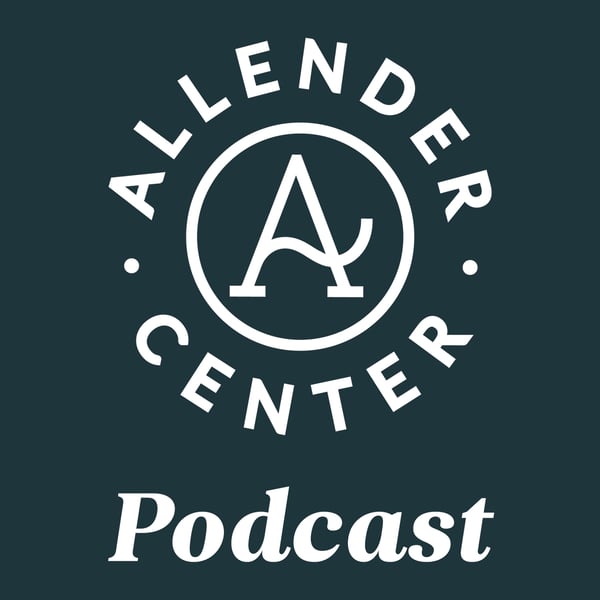Trauma and the Body with Heather Mirous, Part Two
The Allender Center Podcast
The Allender Center
4.6 • 628 Ratings
🗓️ 12 November 2016
⏱️ 22 minutes
🧾️ Download transcript
Summary
This week, Dr. Dan Allender continues a conversation with his friend and colleague Dr. Heather Mirous about how trauma and abuse affect our physical health and embodied reality. Heather, a psychologist and contributor to Healing the Wounded Heart, shares what she has learned about the physiological effects of trauma and the ways our bodies cope with fragmentation, dysregulation, and deterioration.
Transcript
Click on a timestamp to play from that location
| 0:00.0 | You're listening to the Allender Center podcast with Dr. Dan Allender. |
| 0:10.3 | This week, Dan continues a conversation with his friend and colleague, Dr. Heather Marose, |
| 0:15.6 | about how trauma and abuse affect our physical health and embodied reality. |
| 0:20.2 | Heather, a psychologist and contributor |
| 0:22.3 | to healing the wounded heart, shares what she has learned about the psychological effects of trauma |
| 0:27.2 | and the ways our bodies cope with fragmentation, dysregulation, and deterioration. |
| 0:34.9 | Well, it's my privilege again to have my dear friend, Heather Morose, with me as we talk about the effects of trauma and abuse on our bodies. |
| 0:45.3 | And Heather, so good to have you back after last week sharing something of your health story and all the realities of what it means to enter that world and to know that |
| 0:57.1 | abuse even decades later has the potential to affect our health. And I wonder if you would |
| 1:04.3 | today invite us a little further into what does trauma and abuse do to our bodies? What happens to our bodies, |
| 1:14.4 | our brain in particular, as a result of abuse? Well, thank you, first of all, Dan, for having |
| 1:20.2 | me back. It's my privilege and honor. And it amazes me that Jesus has me in this position to speak on the brain and body and I so love |
| 1:33.0 | it. And so what I can say to start is that we know that trauma disrupts. We know that trauma divides, |
| 1:50.9 | fragments, fragments are experience. And in our brain, there's many mechanisms and places and processes by which this happens. And just to name a few that I found |
| 1:58.0 | profound when preparing to write chapter three, because this is not |
| 2:05.2 | my first hand work, but reading others' work, you know, as I was preparing to help others |
| 2:11.8 | explore this journey, I know God was using it to teach me too. And when I read about how language or how trauma disrupts our language, |
| 2:22.1 | how literally the part of our brain in the left inferior frontal gyrus name Broca's area |
| 2:29.2 | goes offline at the time of trauma. And therefore, we do not have words to speak of the horrors that we've |
| 2:37.4 | endured. It just stung my heart and that's, it's just been so true in my story and it just |
| 2:42.6 | made so much sense. |
| 2:46.0 | And that experience of having our thinking disturbed because we really can't incorporate. |
... |
Please login to see the full transcript.
Disclaimer: The podcast and artwork embedded on this page are from The Allender Center, and are the property of its owner and not affiliated with or endorsed by Tapesearch.
Generated transcripts are the property of The Allender Center and are distributed freely under the Fair Use doctrine. Transcripts generated by Tapesearch are not guaranteed to be accurate.
Copyright © Tapesearch 2025.

